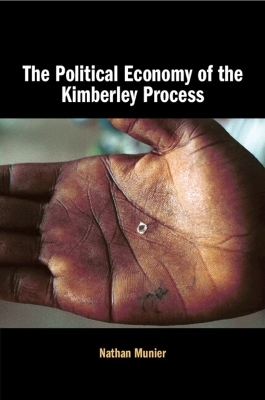
The Political Economy of the Kimberley Process
Cambridge University Press (Verlag)
978-1-108-81358-7 (ISBN)
In the late 1990s, the issue of diamonds contributing to conflict began to receive global attention. In response, the Kimberley Process, an international agreement drawn up in 2003, was implemented to reduce the trade of conflict diamonds and provide a way to certify the global diamond trade. This study looks at the political economy of resource-wealthy states in Africa to understand responses to the Kimberley Process, asking why some African states have higher levels of compliance and co-operation than others. Using cross-country comparisons to explain differing state policies and outcomes, Nathan Munier explores whether domestic, private economic actors matter in how international agreements operate. In doing so, he asks why states that regularly ignore international agreements will use scarce resources to raise their level of compliance with the Kimberley Process. Focusing on the domestic political economy of states, in contrast to past theories of state responses to international agreements, Munier finds that economic dependence and the preferences of private actors are essential in understanding the variation of state responses to international agreements.
Nathan Munier is Assistant Professor of International Relations at Tokyo International University where his research areas focus on international political economy, international agreements, African Politics, conflict resources, and migration. He is the author of articles in journals including Resources Policy, Review of African Political Economy and African Security.
1. Diamonds after blood? explaining state responses to the kimberley process in Africa; 2. The domestic political economy of international agreements; 3. From passiveness to the presidency! the changing nature of angola's responsiveness to conflict diamond regulation; 4. Diamonds, dependence and de beers: monopoly capitalism and compliance with the kimberley process in Namibia; 5. The one who controls the diamond wears the crown! the politicization of the kimberley process in Zimbabwe; 6. The limits of cooperation after conflict? the case of the kimberley process in Sierra Leone; 7. No private companies=no compliance: the crisis of the kimberley process in the central African republic; 8. Understanding the nature of the kimberley process and international agreements; Works cited; Index.
| Erscheinungsdatum | 10.08.2024 |
|---|---|
| Zusatzinfo | Worked examples or Exercises; 7 Tables, black and white |
| Verlagsort | Cambridge |
| Sprache | englisch |
| Maße | 152 x 229 mm |
| Gewicht | 311 g |
| Themenwelt | Sozialwissenschaften ► Politik / Verwaltung |
| Wirtschaft ► Volkswirtschaftslehre ► Wirtschaftspolitik | |
| ISBN-10 | 1-108-81358-5 / 1108813585 |
| ISBN-13 | 978-1-108-81358-7 / 9781108813587 |
| Zustand | Neuware |
| Haben Sie eine Frage zum Produkt? |
aus dem Bereich


